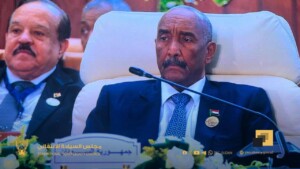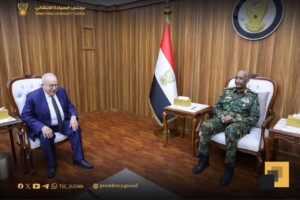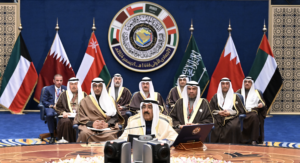Darfur rebels urge Unamid to protect, Troika and EU to maintain pressure
The Sudan Liberation Movement led by Minni Minawi calls on Unamid to protect the Darfuris living in conflict areas, and on the Sudan Troika and the EU to pressure Khartoum to allow expelled humanitarian organisations to return.
After fierce fighting between Sudanese government forces and rebel fighters in Darfur last month, the Sudan Liberation Movement led by Minni Minawi (SLM-MM), calls on Unamid to protect the people living in the conflict areas, and on the Sudan Troika and the European Union (EU) to urgently pressure Khartoum to allow expelled humanitarian organisations to return to the country’s war-torn western region.
Unamid must immediately move to the conflict areas to verify what is happening on the ground and protect the civilians, Ali Trayo, Chief Negotiator of the SLM-MM, said in a statement on Friday.
The Sudan Troika (USA, UK, and Norway) and the EU should “urgently act and put pressure on the ruling National Congress Party (NCP) to allow the humanitarian organisations [expelled in former years] to return and have access to conflict-affected areas in Darfur”.
The rebel spokesman reacted to a joint Troika-EU statement issued on Thursday, calling on the Sudanese government and the Darfur rebel movements to show restraint after fierce fighting broke out in East and North Darfur on 20 May, to ensure safe and unhindered access to humanitarian organisations, to finalise as soon as possible a joint cessation of hostilities agreement, and to actively seek a political compromise.
Improved relations
The SLM-MM welcomed the statement, but warns that the improved relations of the Sudanese government with the international community may lead to attempts by Khartoum to conceal its aggression, the humanitarian catastrophe caused by the recent attacks, and the “flagrant violations of human rights” in the country.
“In the light of the new developments, it is the SLM-MM conviction that the NCP regime has taken the advantage of the international community’s reluctance and launched brutal attacks on SLM-MM strongholds in several locations in Darfur, in an attempt to impose its version of peace through gun muzzles,” Trayo states.
“This aggression exacerbated the humanitarian catastrophe innocent civilians are suffering from. They were killed, raped, robbed, and displaced after their homes were torched.”
According to Trayo, the international community should pressure the Sudanese government to implement the relevant UN Security Council resolutions related to the conflict in the region.
He appeals to the EU, “an instrumental partner of the ongoing peace process in Darfur”, to play a key role in the peace process, together with the African Union and other partners.
He warns that “In this regard, it is important to bring to the attention of the international community the fact that the government has never been committed to any unilateral cessation of hostilities it declared. Rather it uses [a ceasefire] to reinforce itself in preparation for further attacks.
“The graduation of the recent last batch of the Rapid Support Forces (RSF) militia [..] that participated in the recent fighting testifies this reality. It is therefore important for the mediation to compel the parties into an agreement that is verifiable,” the rebel statement reads.
Migration
The EU should further consider “that the issue of the illegal migration through the Sahara to the Mediterranean Sea can only be resolved by reaching a comprehensive political solution that addresses the root causes of the conflict that led to illegal migration”.
According to the rebel mediator, “the regime's RSF militia” that has been assigned to halt migration at the Sudan-Libyan border, “take the issue of migration as a means of material gains, and they themselves [..] run the business of human trafficking”.
Trayo refers here to an €100 million support package pledged by the EU to Sudan in April 2016, to address irregular migration. The funding is aimed to tackle the root causes of instability, irregular migration and displacement. Targeted areas are eastern Sudan, Darfur, South Kordofan and Blue Nile state. Another €40 million is appointed to Better Migration Management, supporting the process in Khartoum.
Actors in Sudan and abroad have protested the new EU policy. They warned not only for the possibility that the money might land up in the pockets of “corrupt groups”, but also that the funds may be used to “embolden a regime and militia force that acts with impunity and now faces even fewer checks on its criminal behaviour”.
The RSF militia was created by the Sudanese security apparatus in 2013 to fight the armed rebel movements in the country. Since early 2014, they have raided dozens of villages in various parts of Darfur. In 2016, they began to patrol the Sudanese borders to intercept illegal migrants.
The EU has denied that its new cooperation with Sudan would support the RSF. Assistance will be “delivered at bilateral and regional levels through international agencies and NGOs”, the EU Delegation in Sudan said in September 2016.











 and then
and then